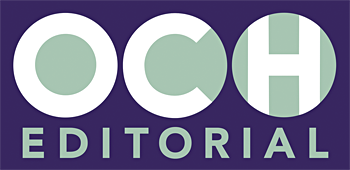OCH and house style
‘… style rules enable the reader to concentrate on the content of the text without being distracted …’
Butterworths House Style for Legal Works
Most publishers and large organisations have their own house style. Sometimes this may simply be a matter of ensuring consistency in the presentation of various documents with regard to matters of spelling, punctuation, terminology, units and so on. However, if house style is to be informed by questions such as the general type of audience, key facts, and what ‘tone of voice’ is appropriate, then the ambit of the issue becomes broader. It may be broader still if there is to be consistency in how the organisation itself is presented.
For any competent copy-editor or proof-reader, and certainly those employed by OCH, familiarity with the standard house styles such as Oxford, OSCOLA, Cambridge, or Chicago, besides the standard works of editorial reference, can be taken as a given. Some subject areas have their own, more specialised, sources of reference. Editors working in those areas will be required to be knowledgeable in the industry-standard terms and definitions.
Is there an OCH style?
Some publishers are highly specific about how work must be presented, and the copy-editor’s first task, quite often, is to study and digest the publisher’s detailed guidance.
While not something that is set in stone, OCH nevertheless has its own preferred style. Effective communication requires certain formalities to be observed, which in turn will have consequences regarding the types of expression and forms of presentation that are most suitable. The priorities include:
- Consistency, clarity of expression and avoidance of ambiguity.
- Economy and elegance of style.
- Avoidance of jargon, management-speak and cliché.
- Clear reasoning and a coherent and well-articulated narrative.
- Helpful use of illustrations where appropriate.
Tone
Attention must be paid to the tone of any communication. It can be easy, without meaning to, to sound hectoring, arrogant or boastful. The use of absolute terms is not always helpful – things are rarely 100 per cent good or 100 per cent bad, right, or wrong. A calibrated, nuanced approach to descriptive terminology may be better. And drawing attention to one’s own cleverness will only bore or irritate the reader. Being too chatty, or too didactic, should also be avoided.
